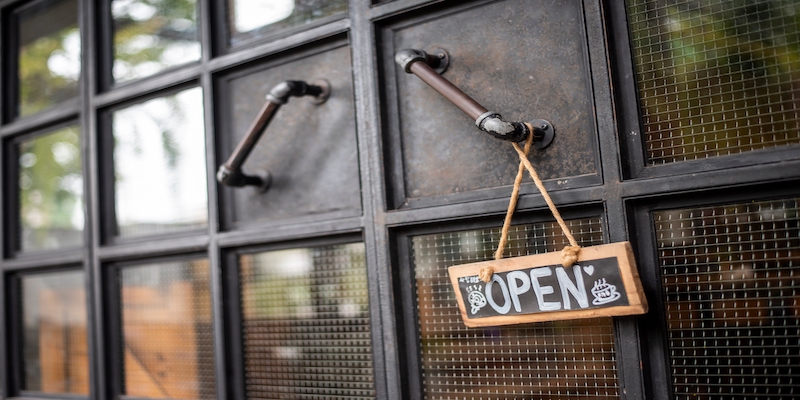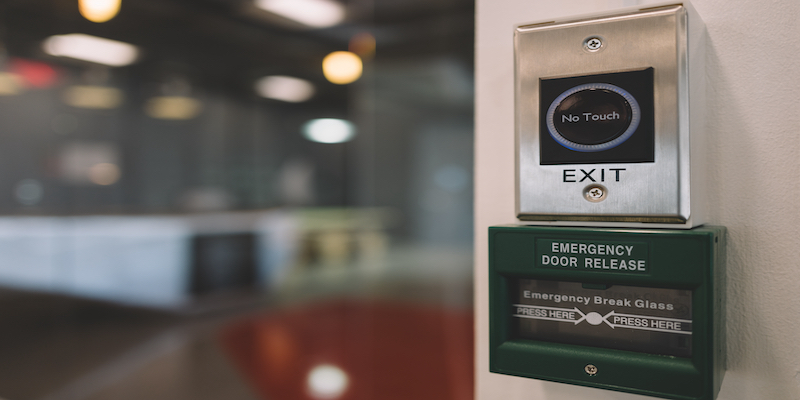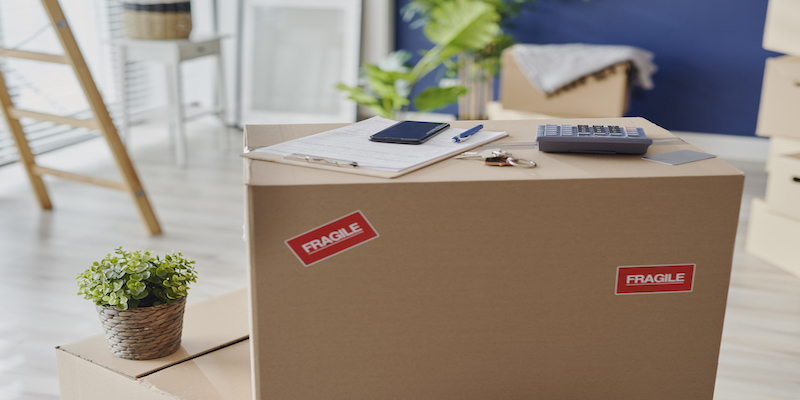The process to negotiate a commercial lease that both safeguards and future-proofs your future is vital if you want to establish a foundation for your business’s future success. So whether you’re a seasoned entrepreneur or starting out with your ambitious startup plan, navigating the intricacies of this legally binding contract requires careful consideration.
In this guide, we unravel the basics of what is a commercial lease in the first place, before delving into the subtle art of negotiations and outline key terms to lookout for. Join us as we explore the crucial elements that could spell the difference between financial stability for the foreseeable future and an unclear future.
Firstly, What is a Commercial Lease?
A ‘commercial lease’ refers to the legally binding contract that is made between a landlord and a business tenant renting a commercial space. A commercial lease affords the tenant the right to use the specified property for commercial use for a set period of time.
Key elements that should be contained within a commercial lease include:
- Identities of all parties involved (landlord and tenant(s))
- Details of the specific property being leased
- Terms of the lease. This includes the duration as well as start and end dates.
- A commercial lease must also outline the amount owed, the expected frequency of these payments, and the penalties for non-payment.
- Specific details regarding who maintenance and property repairs will fall to.
- Clearly stated permitted uses of the space.
- Are alterations to the space allowed?
- The types of insurance coverage required for the property.
- Terms relating to lease termination and renewal.
Commercial leases are binding documents. It is therefore crucial that you thoroughly understand the terms before signing anything. Agreeing to a commercial lease that you cannot afford could lead to serious financial consequences for you and for your business.

Why Is It Important to Negotiate a Commercial Lease?
The affordability of your business’s commercial lease will directly impact its ongoing financial stability. This will therefore have a knock-on effect on your capability to not only cover rental costs, but also operational expenses. Defaulting on a lease could also lead to severe legal consequences.
It is vital that you negotiate a commercial lease if you want to ensure your company is operating as sustainably as possible. Should your firm be faced with any periods of slow business, properly negotiating your lease, to make it as affordable as possible, will allow you to weather the storm and allocate your resources strategically in order to overcome any crises you could face.
Consequences of defaulting on your business’s lease can include:
- Legal issues for both the company and directors
- Eviction
- Damages to credit scores
- It could lead to serious financial issues for the firm
Before signing a lease, it is important that you conduct a thorough assessment of your finances in order to ensure that your agreement is fair, realistic, and conducive to both the long-term well-being of your company and yourself.
How to Negotiate a Commercial Lease: 6 Tips For The Best Deal
When looking to negotiate a commercial lease, it is important that you scrutinise every aspect. You shouldn’t ‘play nice’ to secure a speedy resolution — even if the premises are perfect. You must make sure you try to negotiate for things like a rent-free period, a break clause, and more, to ensure that you retain some control over your situation.
Assess Your Business’s Needs
The first step you must take before seeking out premises and beginning the process of negotiating your lease should be to carefully consider the wants and needs of your business.
Do you predict rapid growth in the near future? Does your footfall fluctuate heavily with the seasons or due to another factor? The former could see you outgrowing your premises before your lease ends, while the latter may require careful consideration over the size of property you need.
Ultimately, in most cases, you should look to find an ideal location to allow you ample room to grow, without stretching beyond your means.
Negotiate As Long a Rent-Free Period As You Need
It is common practice in the industry for a landlord to agree to a rent-free period at the beginning of a tenancy. This is done to incentivise tenants to move in and is generally a period of time for the tenant to get established in the premises and get everything set up as needed.
Therefore, it is vital that you negotiate the longest rent-free period possible, as it affords you as much breathing room as you need.

Push For a Break Clause
One of the key tips you should keep in mind if you’re looking to negotiate a commercial lease in the near future is to try to incorporate a ‘break clause’. Break clauses are part of an agreement that gives you the legal right to end the lease early should you wish.
There are a number of different factors that can determine whether your current premises are still suitable or not. So, if you were to want to move on to a different property for any reason, with a break clause you would have the security to do so without worrying about separating from a contact early.
Break clauses can be valuable tools to ensure that your company cannot become trapped in one place should you need to grow or downsize for any reason.
Negotiate Your Repair Obligations Before Signing Anything
You might be of the belief that any repairs necessary to the premises will fall on the tenant. However, this can be negotiated in order to reduce the risk of significant repair liabilities.
Things you can clarify and push for in a repair clause include:
- Agreeing that the premises is to be left in a similar condition to how it was at the beginning of the lease (with images to ensure that disproportionate requests aren’t made)
- Limiting your maintenance responsibilities to only the inside of the property. This puts the onus on the landlord to keep the exterior presentable.
- Who would be required to pay the cost of alterations or improvements to the building — careful negotiations could see the cost of improvements being significantly reduced on your end, if not taken out of your hands completely (within reason)
Try to Avoid Personal Guarantees
A landlord may push the directors of the company to provide a personal guarantee. However, this form of agreement contradicts one of the core benefits of operating a limited company.
A personal guarantee, were your financial situation to become wrought down the road, could put you in a very difficult situation and may lead to large sums being owed, or even personal bankruptcy if the money owed is significant enough.
If your landlord is adamant that they need some security before a lease can be signed, it’s beneficial to speak to an expert. You may be able to offer a rent deposit (typically consisting of three months’ rent) which can be given back to the commercial tenant upon the lease’s expiry, presuming there have been no issues.

Seek Legal Advice
Securing a commercial lease that benefits you can be a challenging and complex process. The negotiations can be difficult as neither side will want to give too much away. This is where a legal professional can help.
An expert will be able to review the proposed lease and make recommendations as to what should be changed and how to go about doing so.
Appointing such a professional at the very start of the negotiations can maximise your chances of coming out the other side with a positive outcome.
What To Do If Negotiating Your Lease Isn’t Enough
In the ever-unpredictable landscape of business, where every single decision you make can shape your future, the significance of a well-negotiated commercial lease should not be overstated. Your lease is not simply a legal agreement on a piece of paper (or an online document), it is a roadmap for the immediate future of your business; it can influence your financial resilience and operational flexibility for the remainder of the tenancy.
However, if the worst-case scenario were to unfold, even a properly negotiated commercial lease may not be enough. If insolvency were to become a genuine possibility, it’s important you have somebody you can trust in your corner.
Inquesta’s team of seasoned insolvency professionals represent reliable and trustworthy partners who understand the toll financial insecurity can take on all involved. Should the need arise, our team specialise in providing compassionate yet strategic guidance through the many complexities of liquidation and insolvency proceedings.
From meticulously assessing your financial situation to developing tailored solutions to protect your best interests. Our aim is to empower you with the knowledge and support you need to navigate the most challenging times and come out the other side. For more information about what we can do to help you, and to find out more about our range of services, contact a member of the team today.

